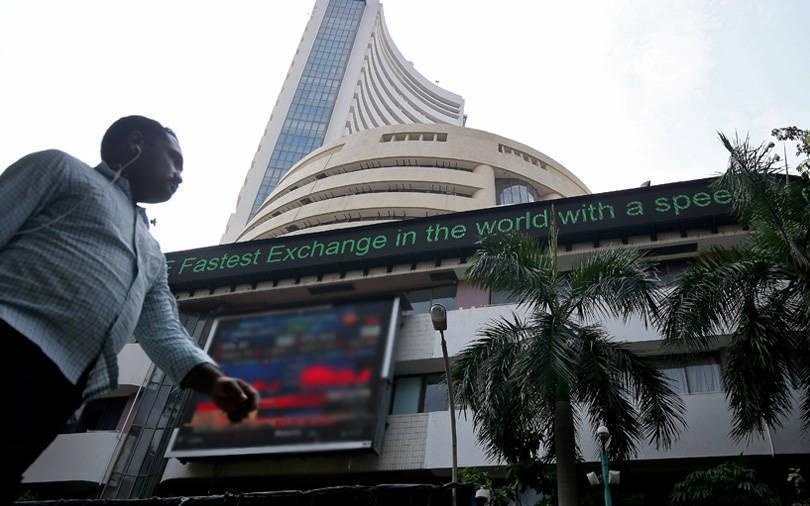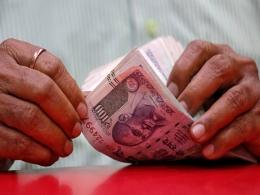India’s benchmark stock market indices closed nearly 1% in the red as many of the proposals announced in the Union Budget on Friday prompted the Street to unwind long positions and book profits.
The BSE’s 30-stock Sensex declined 1% or 394.67 points to close at 39,513.39. The gauge had opened with much vigour and once again crossed the 40,000 mark in early trade as investors awaited finance minister Nirmala Sitharaman’s maiden budget speech.
The 50-share Nifty lost 1.14% or 135.60 points to close at 11,811.15. The index was within touching distance of its crucial psychological level of 12,000, but pared gains led by selling pressure in shares of metal, materials, real estate, and oil and gas companies.
Fuel prices are set to increase as the government proposed to impose additional excise duty on petrol and diesel by Re 1 per litre.
Shares of oil marketing companies such as Indian Oil Ltd and Bharat Petroleum Corp. Ltd fell more than 2.5%. Reliance Industries, which is the second-largest company by market capitalisation and owns and operates the world’s largest refinery, also saw its stock decline 1.64%.
Oil and gas exploration companies also ended in the red with Oil and Natural Gas Corp Ltd (ONGC) falling 3.35% and Oil India Ltd losing 2.36%.
"The markets got jittery on three counts: the increase in effective tax rates for HNI investors played down on market sentiment, the announcement related to increase in public shareholding, and tax on share buybacks. To a certain extent the markets have been impacted for these factors," said Mayuresh Joshi, funds and portfolio manager at Angel Broking.
The broader markets underperformed benchmark indices, with the BSE mid- and smallcap indices closing down 1.35-1.4% each.
Market breadth turned negative with just 780 stocks gaining as against 1,690 stocks ending in the red.
Barring banks and consumer staples stocks, all sectoral indices finished in the red.
The BSE Metals index was the top loser (down 3.85%). State-run Steel Authority of India (SAIL) fell nearly 7%. Jindal Steel & Power Ltd declined 5.5%, while NMDC and Vedanta lost more than 4% each. Tata Steel declined nearly 3.5%.
Jewellery stocks witnessed heightened selling pressure after the government proposed to increase customs duty on gold and precious metals to 12.5% from 10% earlier.
Shares of listed jewellery firms such as Titan, PC Jeweller, and Tribhovandas Bhimji Zaveri (TBZ) fell in the range of 1-5%.
The realty index was the top performer intraday, but pared gains to lose 3.6%. DLF Ltd, the country’s largest developer, declined 3.7%, while Oberoi Realty lost 6.44%, Sunteck Realty and Prestige Developers fell more than 4% each.
Amar Ambani, president and head of research at Yes Securities (India) anticipated volatility to increase as the Nifty was unable to build gains at higher levels and continue its recent winning streak.
"[The Nifty’s] inability to surpass 12,000 along with the appearance of small bullish candle with relatively large upper shadow suggests profit taking at higher levels," Ambani said.
New proposals
The government proposed a slew of measures pertaining to India’s capital markets including one that requires listed companies to have a higher public shareholding than earlier mandated.
The government also proposed to raise minimum public shareholding for listed entities to 35% from 25%, a measure that experts believe will suck the liquidity out of capital markets on one hand, and lead to correction in stock prices of companies on the other.
"...the announcement related to increase in public shareholding from 25 to 35% will roughly add Rs 3.6 lakh crore of paper hitting the market," said Joshi.
The capital markets regulator had first introduced the concept of minimum public shareholding in 2010, and allowed three years to all publicly traded companies – barring state-owned firms – to attain a minimum 25% public shareholding.
However, listed PSUs were unable to meet these norms and SEBI granted extensions year after year. The deadline was extended for the third time to August 2020 for listed PSUs.
Nitesh Mehta, partner – transaction, tax, & Regulatory Services at BDO India LLP, said that minimum public shareholding norms will require promoters to trim their stake in a time-bound manner and it is essential to have a highly conducive environment for the primary and secondary markets.
Sampat Reddy, chief investment officer, Bajaj Allianz Life Insurance said the hike in MPS requirements will lead to an increase in supply of equity paper in the markets.
Among other measures, the government also proposed to relax know-your-customer (KYC) norms for foreign portfolio investors (FPIs) to invite greater participation from such investors as well as merge the non-resident Indian (NRI) portfolio investment scheme route with the FPI route to encourage more NRIs to invest in the country’s capital markets.
The government also imposed a tax on share buybacks. Listed firms will now be liable to pay 20% additional tax on buyback shares and securities from shareholders in order to discourage the practice of avoiding dividend distribution tax (DDT) through the share buyback route.
The government also hopes to enable listing of social sector enterprises on the stock exchanges, whereby the Centre aims to create an electronic fundraising platform – a social stock exchange - under capital markets regulator Securities and Exchange Board of India (SEBI) and list social enterprises and voluntary organisations.






